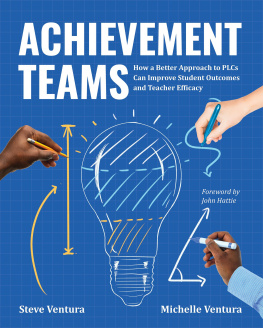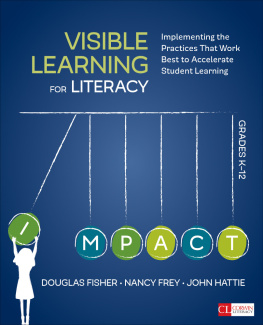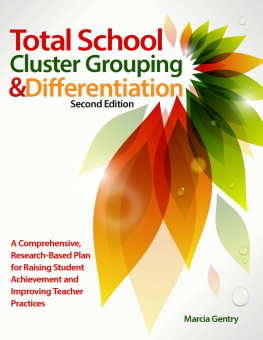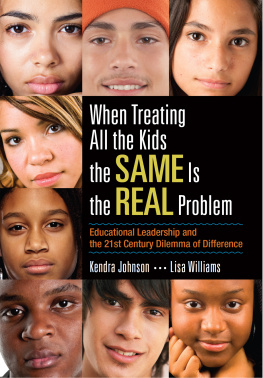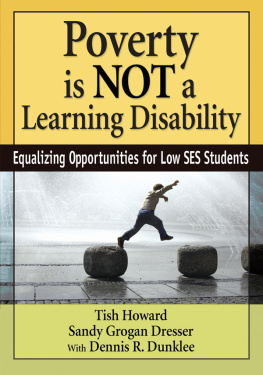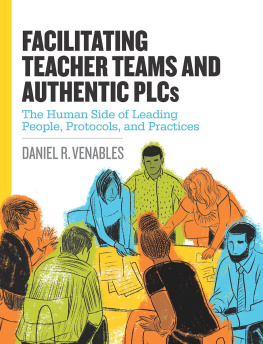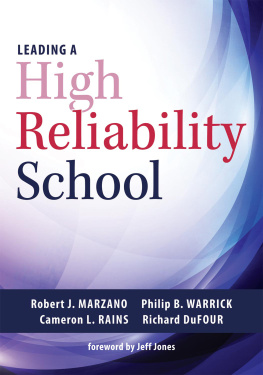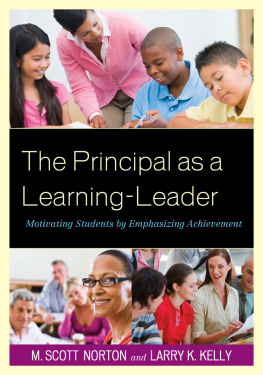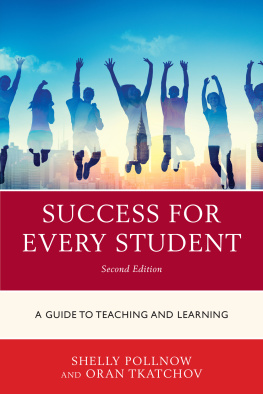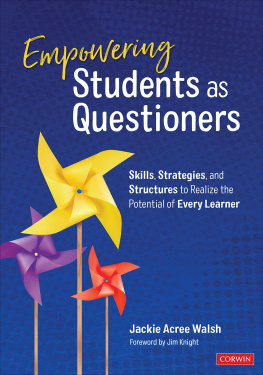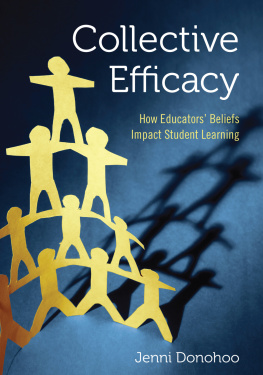Contents
Guide
Pages for Achievement Teams

ASCD Member Book
Many ASCD members received this book as a member benefit upon its initial release.
Learn more
Foreword
Achievement Teams, the Key to Effective Collaboration
....................
I am driven by the incredible number of successful schools I have visited and the many expert leaders and teachers I have been fortunate to meet as I travel the world. My mission is to change the focus of our current debates about schools, from finding fault and dreaming up fixes to finding success and upscaling it. This book focuses on upscaling success, not one teacher at a time but collectively, and makes it clear that it's rare to find a great school without a great leader who has a mission to improve the learning of every student and adult within it.
It took me many years of academic research on the concept of excellence and expertise to understand how this manifested itself in schools, a task made more difficult by a general tendency to blame the kids, the curriculum, the lack of resources and money, the structure of schools, and the parents for a school's less-than-optimal results. But in truth, what counts is the evaluative thinking of educatorsthe moment-by-moment decisions they make in the classroom; the decisions leaders make about how to use time, priorities, and resources; and the evaluations everyone makes about their effect on students and on students' magnitude of growth. This is all the more powerful if educators do this collectively. For this to occur in schools, we need evidence of educators' impact, and this is where Achievement Teams come in, early and often.
This book is based on a deep understanding of my work, and Steve Ventura has been a partner in delivery for many years. The Venturas understand that evidence leads to probabilities, not certainties. They know that a high-impact intervention is a probability, and that if it's poorly implemented, it will not yield high-impact results. The fundamental claim is that "x is formative assessment and evaluation, y is collective efficacy and collaboration, and z is high-quality instructional strategies with higher levels of student achievement"and that these elements are likely to lead to better outcomes for students. There are no fixed answers to the weights or proportions of x, y, and z because these depend on the situation, the desired outcomes, the student, and so many other factors. The art is to dig deeply, be open to surprises, and always check for biases and misinterpretations.
The Venturas also clearly appreciate that collaboration, professional learning communities (PLCs), assessments, and evaluation mustnote, mustfocus on the impact that educators are having on students, and this entails a robust discussion about what the term impact means to each teacher and how transparent these notions and expectations are to the students. Too often, professional learning communities and collective efficacy are about peripheral and even unrelated topics. When he initially introduced PLCs, Rick DuFour was clear that they should relentlessly focus on fostering learning for all students, building a collaborative culture and collective effort to support student and adult learning, and continually improving practice (DuFour & Fullan, 2013). Too often, we wrongly consider just any group of educators meeting together a PLC. We cannot afford this same mistake to occur regarding the notion of collective efficacy or Achievement Teams. Achievement Teams are, at their core, about impact.
Thus, the three focuses of this book: what matters most; clarity; anda word that can cause shiversaccountability. The first pertains to what the collective means by impact; the second to being clear about the criteria for success in a series of lessons (particularly in the minds of students); and the third to our responsibility in terms of the consequences of our thinking and actions on the learning lives of students. I don't mean accountability in the sense of the top-down standardized tests regime that has brought testing a bad name, but accountability in terms of investigating the effect we're having on students, learning to stop what we're doing if there isn't sufficient impact for all students, and upscaling and smelling the roses from the effect of our expertise when there is.
We have had data teams, impact coaches, and so many other "nicer" terms to ensure accountability, so here comes the next one: Achievement Teams. Understanding the effect we're having on students entails using evidence from test scores, assignments, observations of students working and their work, and listening to students talk about their learning. This triangulation of information is a core function of Achievement Teams; it ensures that we educators make defensible and appropriate action-leading interpretations and decisions based on this evidence. The Venturas call this process evidence, inference, and impact.
They are clear on this point. This is not only about whether students master the facts and gain the subject-matter vocabulary, but also about whether they acquire a depth of complexity in their understanding and thinking. The Venturas use Webb's Depth of Knowledge (Webb, 1997) to anchor this distinction (I use the SOLO Taxonomy of John Biggs and Kevin Collis [1982]). The crucial point is that we need both the surface and the depth, the knowing that and the knowing how. We need to ensure that our decisions take both into account, depending on our success criteria, the timing of the instruction, and the differentiated nature of the teaching.
I have often written that I'm not a fan of the terms formative assessment and summative assessment. They place too much emphasis on assessment and not enough on the formative and summative interpretations that occur during and at the end of a series of lessons. Bob Stake, Professor Emeritus of Education, summed it up like this: "When the cook tastes the soup, it's formative; when the guests taste the soup, it's summative." Both are important, both need to be reliable; it's a matter of when we make the interpretations. I prefer the terms formative evaluation and summative evaluation to emphasize that what matter most are the decisions educators make during or at the end of instruction, not the tests.
Many rich examples throughout the book illustrate this crucial distinction, and I particularly commend the message that assessment information is feedback information to teachers about their impact. If you think this way, it also leads to creating more informative assessments. If, after an assessment, you don't learn how to improve your teaching for all your students, the tests are probably wasting not only your time but your students' time as well. This book outlines many strategies for discussing what you learned from assessments with colleagues, from instructional rounds to coaching to microteaching to Achievement Teams.
Let me be clear: creating collaborative teams in schools is difficult. Many great teachers became great because they "did it themselves," but this doesn't lead to upscaling their success. Moreover, newer teachers don't want to enter or stay in a profession that is not collaborative. The problem is, schools and staff rooms are not dominated by discussions about the impact of teaching but, rather, about curriculum, students, assessments, and kicking footballs. Also, we often don't discuss impact on the grounds that we all teach differently, that we all "own" our own studentsand how dare you question my success. This is where great leaders come intheir greatest power in a school is that they can mandate the focus of the narrativeand that narrative needs to be about the impact the adults are having on the students. It needs to remind every teacher that they came into this profession with one major motive: to have a positive effect on students' lives.

